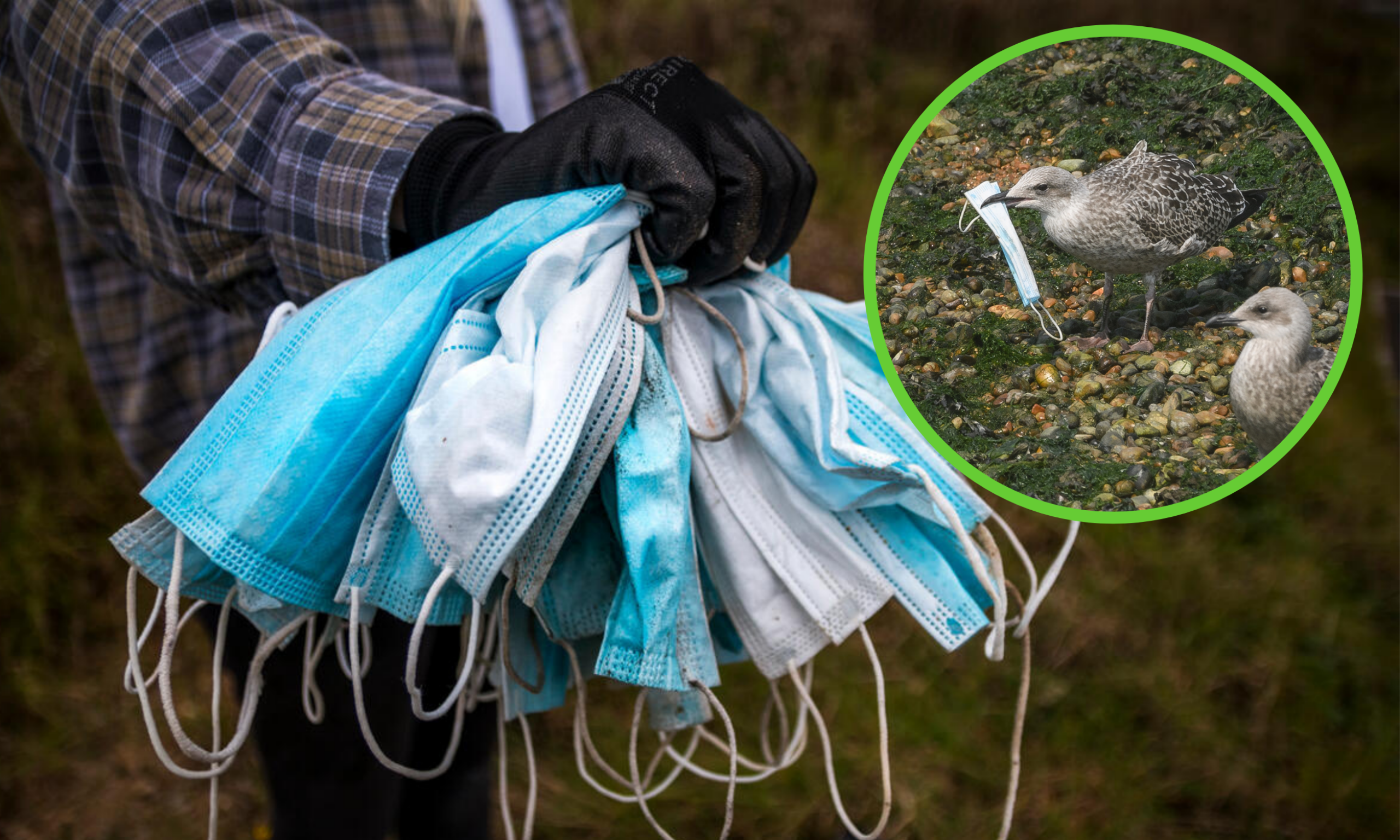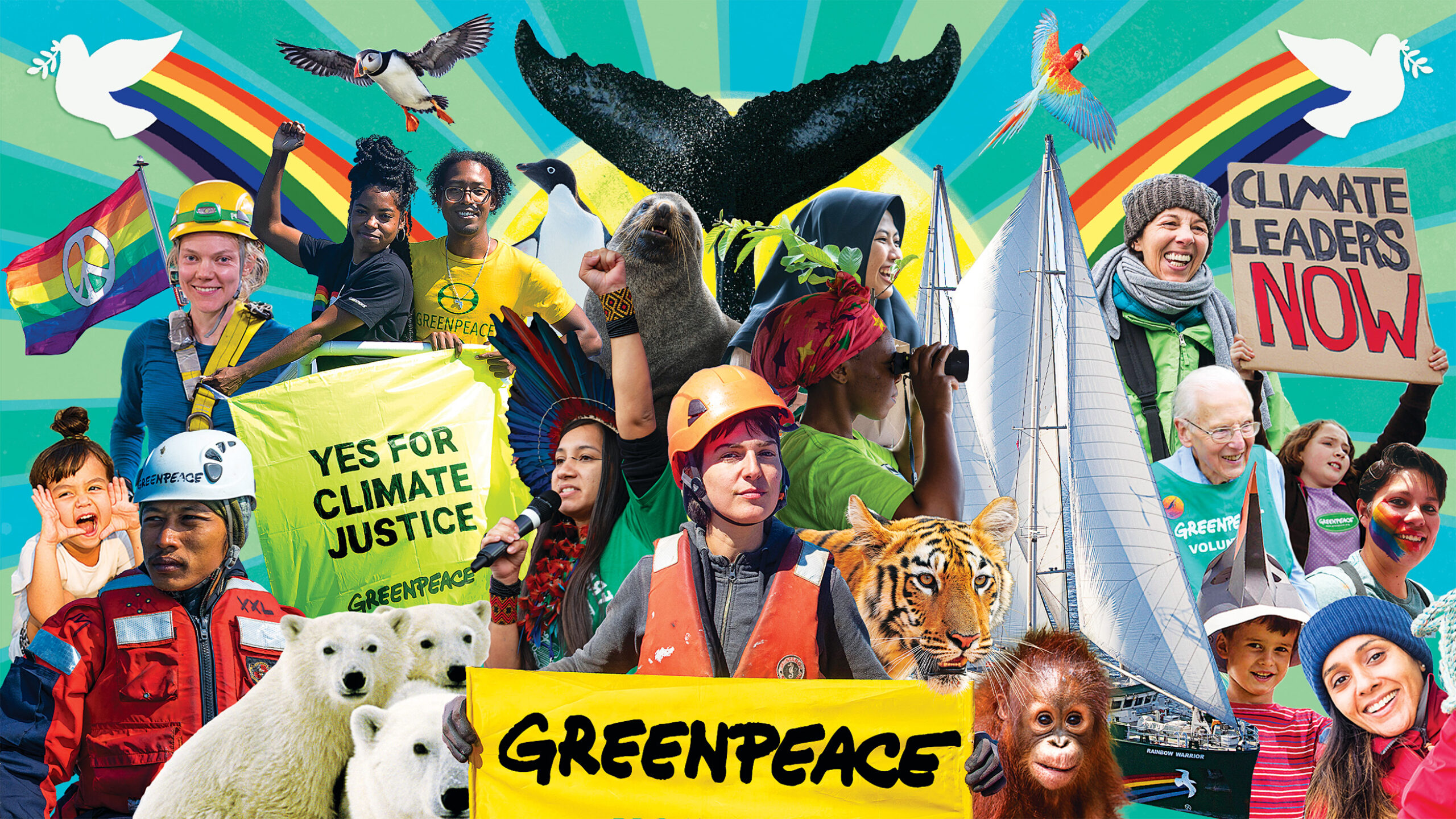
These days it’s fairly common to see face masks littered around the place. They’re generally the blue disposable ones tossed aside in a street gutter or caught up in some long grass at your local park.
Sadly, discarded face masks are not only adding to litter and pollution across the UK’s parks, rivers and seas – they’re also hurting and killing wildlife.
Over the past year there has been an alarming increase in the amount of seabirds and wildlife found tangled up in carelessly discarded single-use face masks.
What’s the problem?
Since masks became compulsory, it’s estimated that the UK throws out 53 million face masks per day.
But not all of them end up in landfill. Countless face masks are making their way into our rivers, meadows, oceans and other places they don’t belong. This is on top of the huge amount of plastic waste already choking the oceans.
Single-use or disposable face masks are made using a variety of plastics, including polypropylene, polyethylene and vinyl – which means they can take up to 450 years to break down. Even then, the plastic stays around as tiny microplastics.
Microplastic particles have been found both in the Antarctic and Arctic. Basically, they’re everywhere. And the all this extra plastic in the age of coronavirus is only adding to the problem.
But for animals like sea birds – it’s the straps of the masks that are causing the most immediate harm. Since March 2020, the RSPCA has had to help more than 900 animals caught in litter. Many of these were birds who are getting their feet caught up in disposable masks.
What can you do?
Choose to reuse
One of the best things you can do to help is to choose reusable face masks. Reusable face masks have lots of advantages as well as being safer for wildlife. You can reuse them, they are generally more comfortable to wear, and they can be washed along with your laundry.
Reusable face masks can also be made at home very cheaply. You can even make your own reusable face mask by upcycling an old shirt – no sewing necessary!
And let’s face it, face masks are here to stay – at least for a while. So if you’re looking for one to buy, think of it as a long term investment.
Dispose of your mask thoughtfully
Of course, it’s not always possible to use reusable face masks. And it’s much more important to wear one than nothing at all. Also, for some lines of work, it is also compulsory to use disposable face masks – so don’t assume someone doesn’t care just because they’re in a disposable mask.
What is important, however, is that we dispose of masks thoughtfully. Face masks can’t be recycled so they need to go in your landfill bin. It’s also a good idea to make sure to put the mask as far down into the bin as possible – so there is less chance it might accidentally fly out of the bag. While it’s not a perfect solution – disposing of your mask thoughtfully in a bin means it’s more likely to end up in landfill than in rivers or the ocean.
Snip the straps
Another step you and others could take is to snip the straps. The RSPCA has urged people to snip the straps of their face masks before putting them in the bin. This means that if any face masks make their way into the environment, they’ll be less likely to tangle wildlife. (Just remember to always sanitise your hands afterwards!)
Also to note: while it is good to snip the straps of your own face mask, don’t attempt to do it to the ones lying on the street or beach (unless you’re in personal protective equipment). Face masks can still carry Covid-19 after they have been discarded – so no touch-ey.
Get active or support your local wildlife charity
However, if you’re really keen to get your hands dirty (so to speak) – look for guidance on canal and riverside litter-picking or beach clean ups. Just make sure to use the recommended safety equipment. It is also a good excuse to get out of the house and into nature – and these days, we need all the reasons we can get!
Or, if you feel more comfortable in the great indoors (totally understandable), look to see how you can support your local wildlife conservation charity online.
Spread the word
I only learned about this problem (and how I could help by snipping the straps on my mask) from scrolling through Instagram.
If you know other people that might not have heard about this issue, share this blog and encourage your friends and family to ditch disposable masks, and help protect nature and the environment.

Change the world with us
Together we can take on the world's worst polluters and solve its biggest problems. See how you can get involved.
